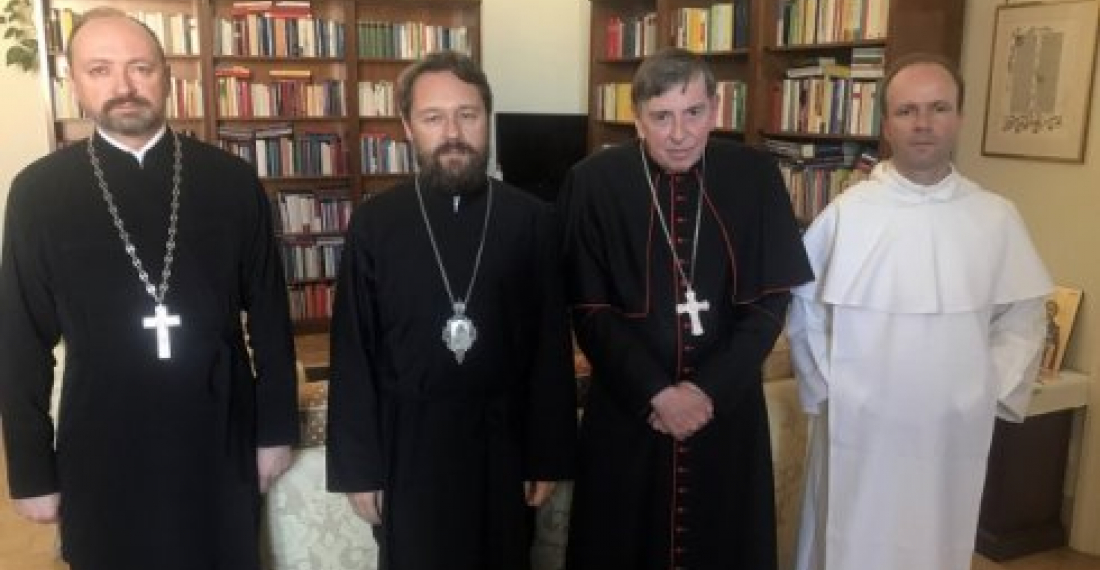An envoy of the Russian Orthodox Church has met Pope Francis in the Vatican on Friday, as fears grow of a new schism in Christian Orthodoxy
The Chairman of the Moscow Patriarchate's Department for External Church Relations, Metropolitan Hilarion of Volokolamsk, had a private audience with Pope Francis on Friday. Metropolitan Hilarion earlier told TASS that the meeting had been planned.
The Vatican provided no details about the meeting. A day earlier Metropolitan Hilarion of Volokolamsk met with the president of the Pontifical Council for Promoting Christian Unite, Cardinal Kurt Koch, within the framework of the General Assembly of the Synod of Bishops of the Catholic Church.
The website of the Moscow Patriarchy said that "Metropolitan Hilarion introduced Cardinal Koch to the decisions of the Holy Synod of the Russian Orthodox Church adopted at its meeting on October 15 in Minsk in connection with the uncanonical actions of the Patriarchate of Constantinople in Ukraine. His Eminence set forth in detail the position of the Moscow Patriarchate on this issue and conveyed to the cardinal the text of the Holy Synod."
The Ecumenical Patriarchate of Constantinople, “first among equals” in the Orthodox Christian world, decreed the Ukrainian Orthodox Church, Kiev Patriarchate, and the Ukrainian Autocephalous Orthodox Church to be canonical, or legitimate. The move is a step on the road to the granting of autocephaly, or independence, to Ukrainian Orthodox Christians. The Russian Orthodox Church, Moscow Patriarchate has now cut ecclesiastical ties with Constantinople, blaming it for the “schism.”
source: commonspace.eu
photo: Metropolitan Hilarion of Volokolamsk met with the Holy See's president of the Pontifical Council for Promoting Christian Unite, Cardinal Kurt Koch on 18 October 2018 (picture courtesy of the press service of the Patriarchate of the Russian Orthodox Church)






